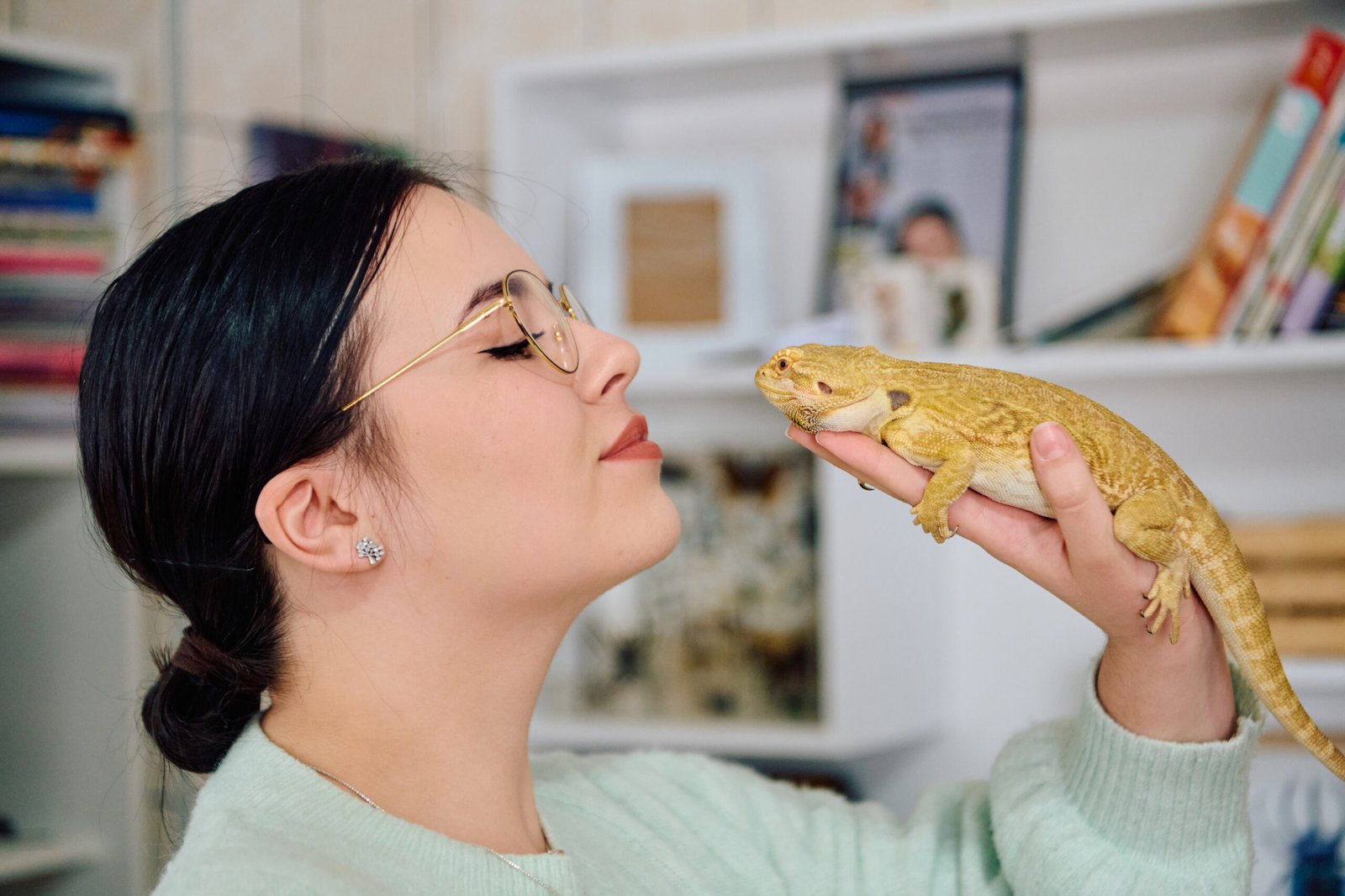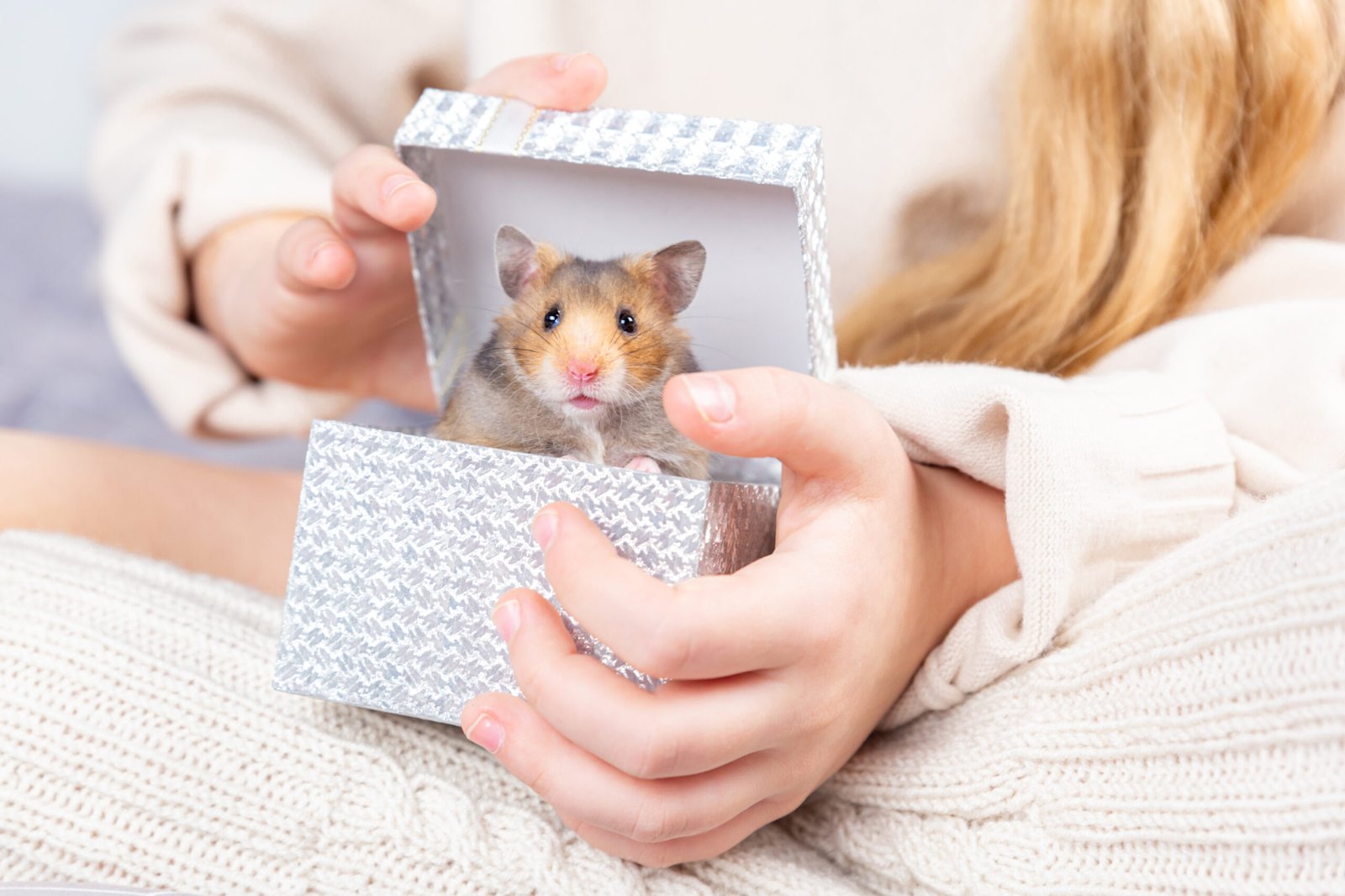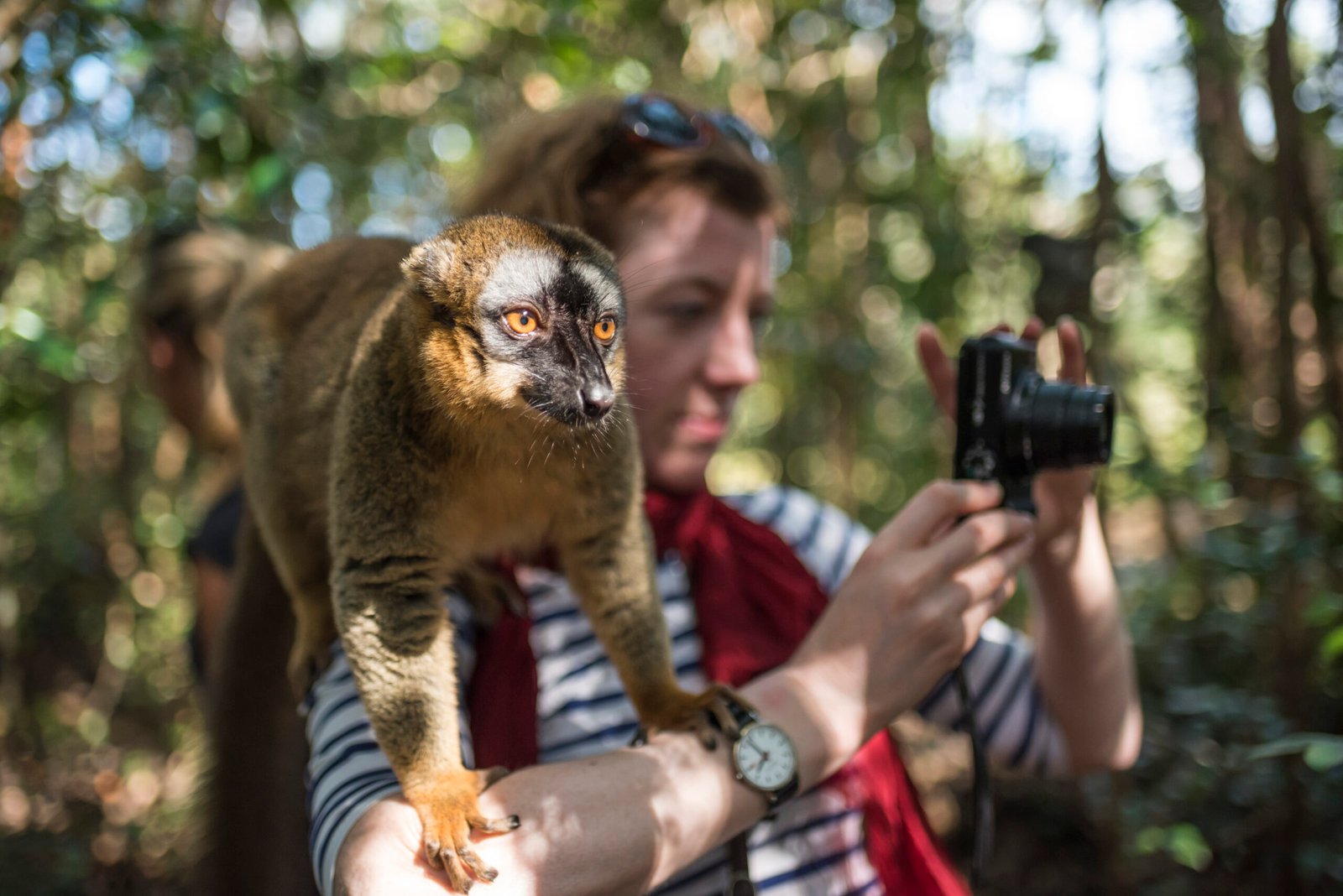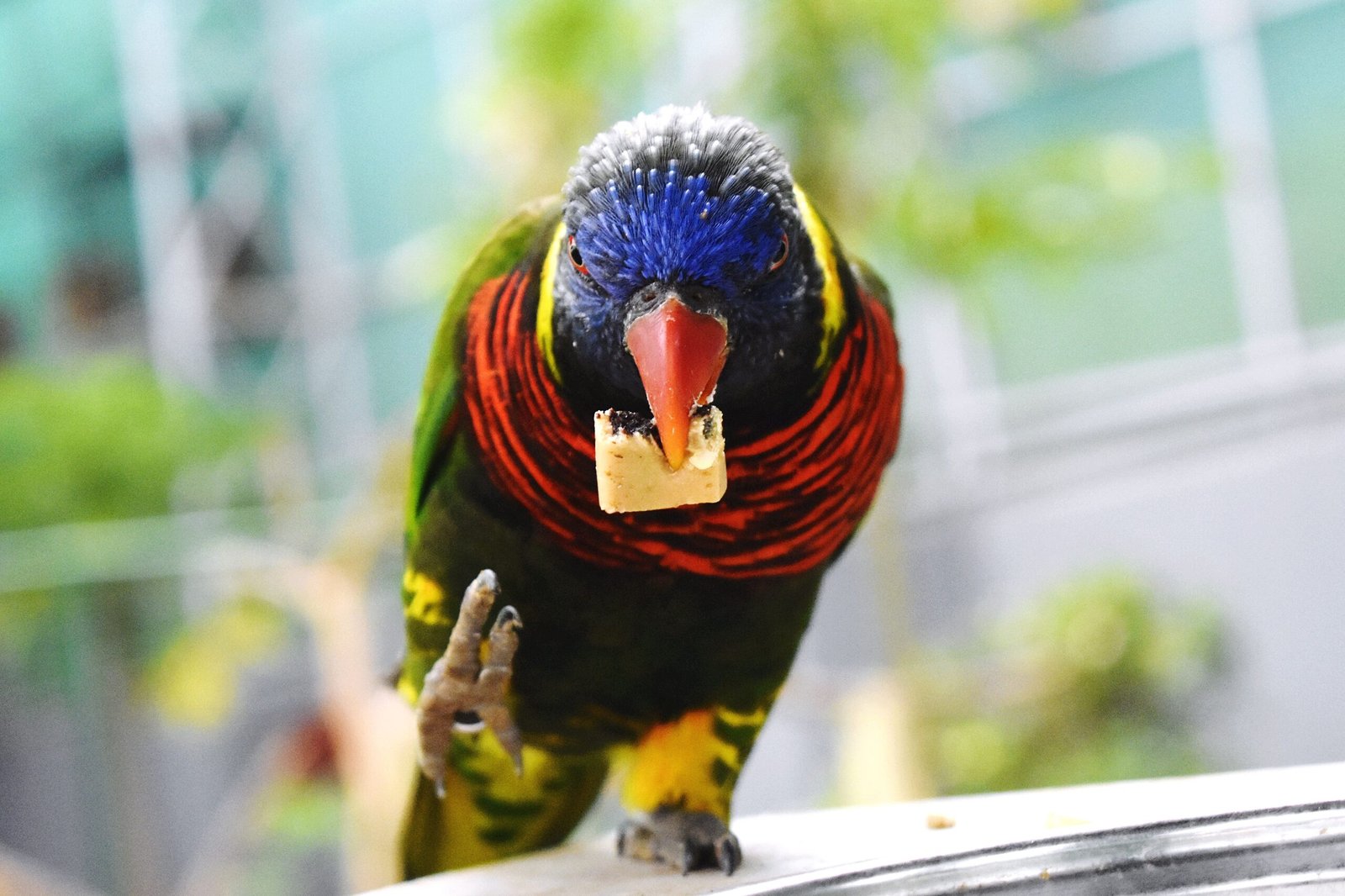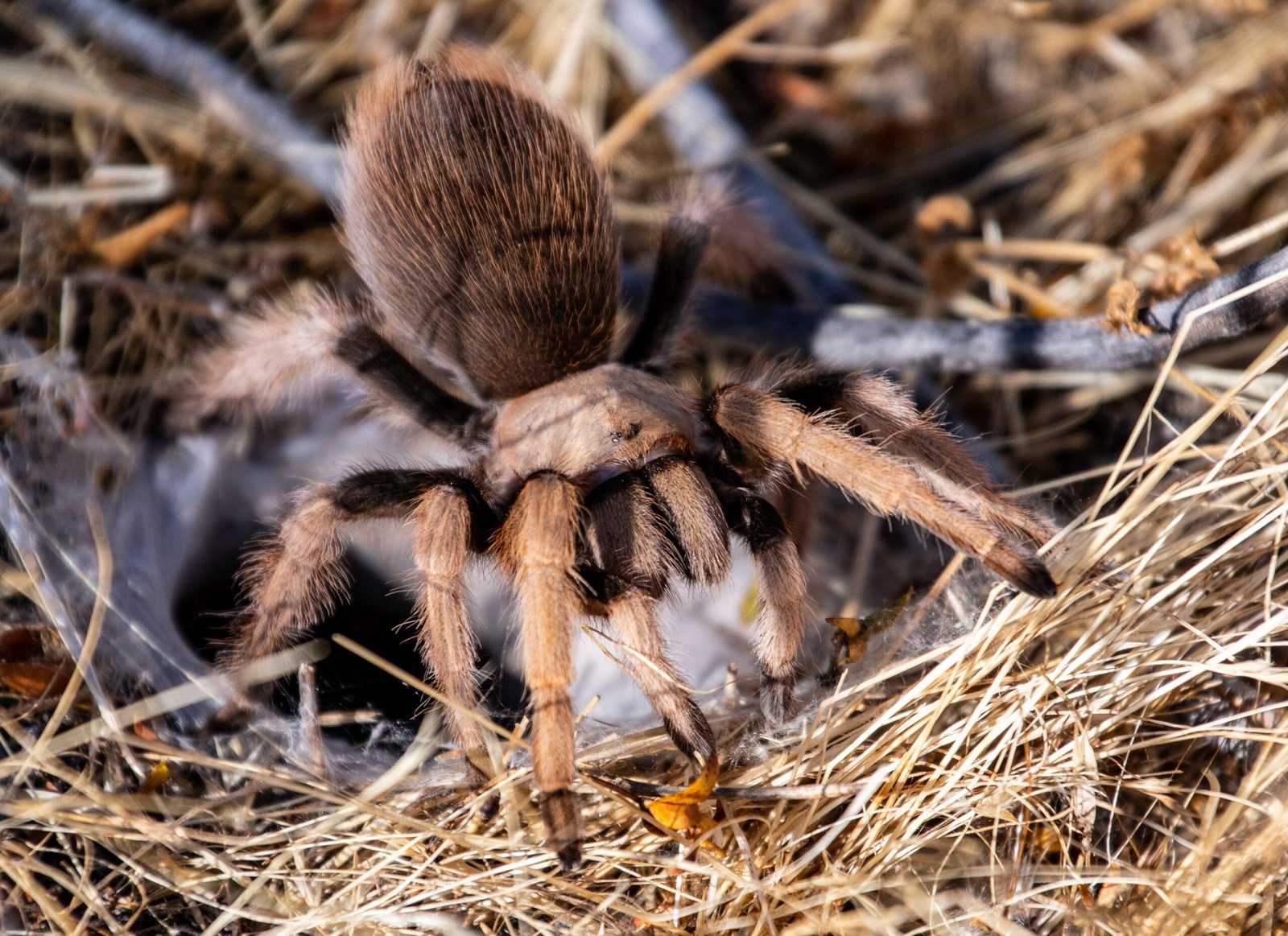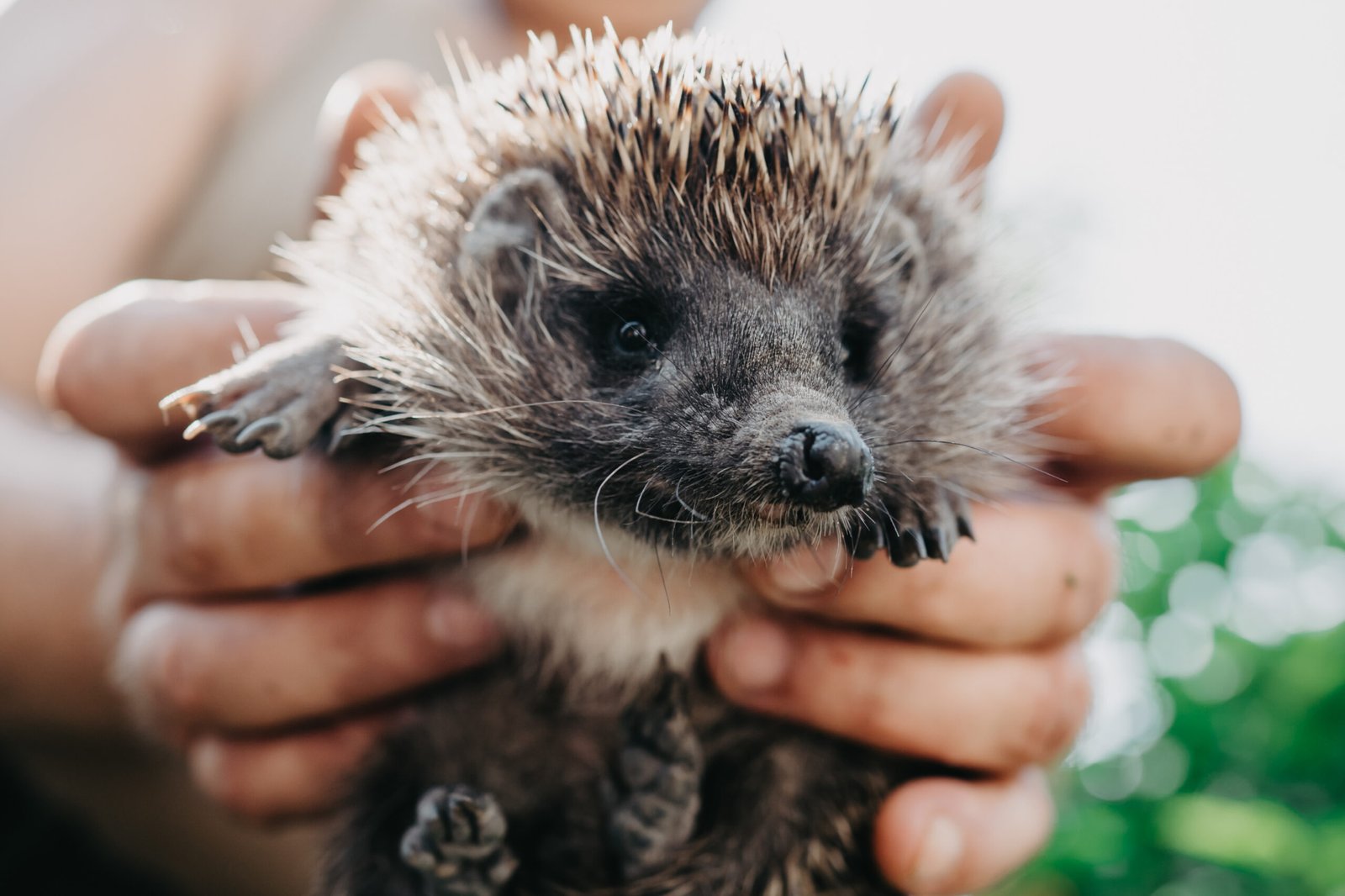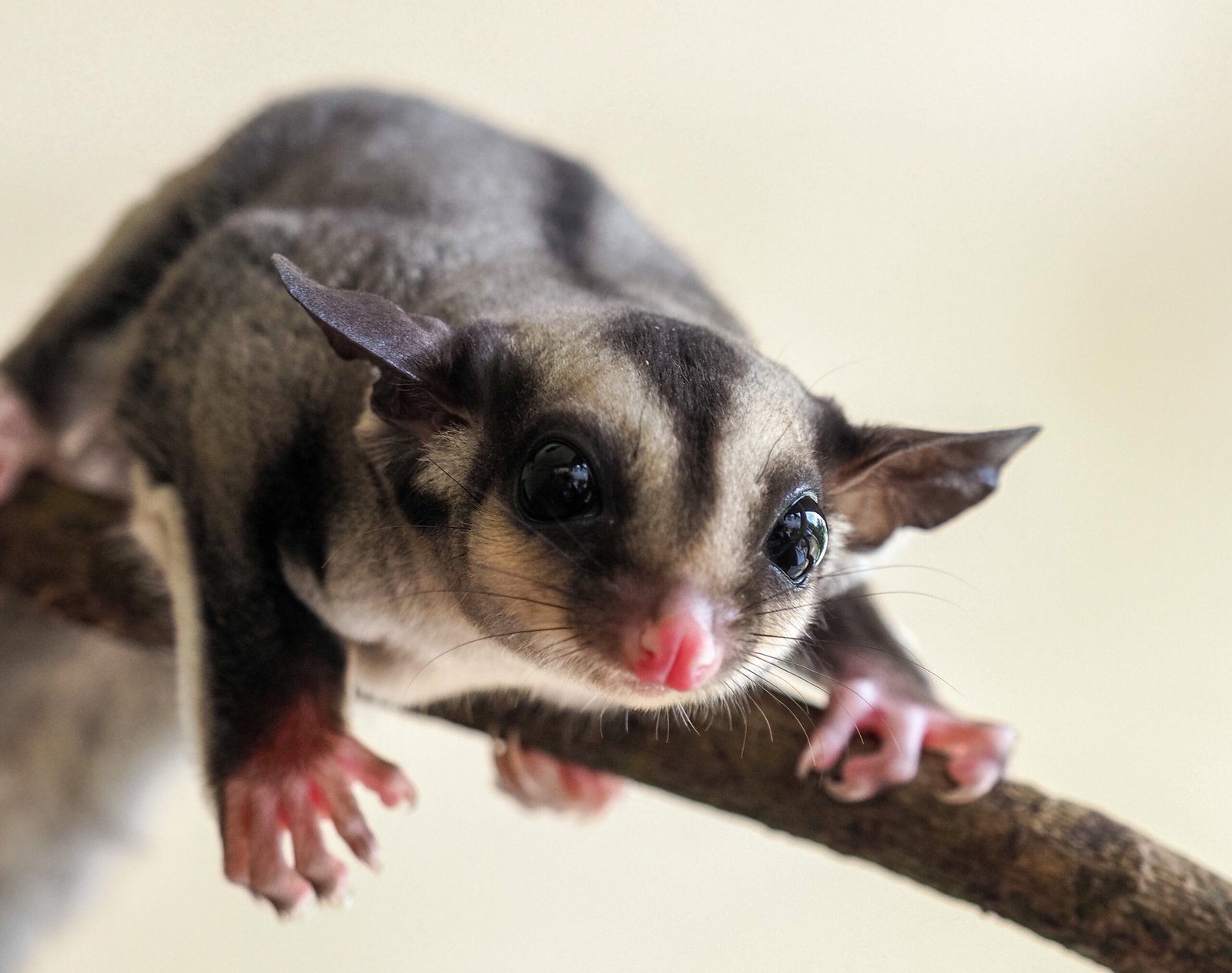Welcoming an exotic pet into your home is an adventure like no other, filled with the promise of discovering unique behaviors and forming special bonds. However, ensuring your exotic friend thrives requires more than love and affection; it necessitates a dedicated checklist of essential supplies that cater to their distinct needs. To help you in this journey, this guide dives deep into the world of exotic pet care, unraveling the mysteries of must-have supplies while ensuring that you, as a responsible pet owner, can unlock true peace of mind.
Understanding Exotic Pets
Exotic pets possess unique characteristics and necessities that differ significantly from conventional pets such as cats and dogs. Understanding these needs is crucial for their well-being and happiness. Each exotic pet species demands specific supplies that cater directly to their unique environmental, dietary, and enrichment requirements. For instance, while a large cat may thrive on a diet of meat and require space to roam, a small reptile might need precise humidity levels and UVB lighting. Such disparate needs suggest that providing the right care begins with thorough research and preparation.
Researching the precise habitat setups for your exotic pet is of paramount importance. This entails understanding their diet requirements, setting up appropriate enrichment activities to prevent boredom, and offering a comfortable, stimulating environment. Moreover, exotic pets often need specialized healthcare and regular check-ups tailored specifically to their species, ensuring they remain healthy and active. By maintaining a comprehensive checklist of these essentials, pet owners can ensure they are prepared for all scenarios, significantly enhancing the care and happiness of their exotic companions.
– Invest time in researching specific habitat needs for different exotic pets.
– Acquire an understanding of dietary requirements to provide a balanced diet.
– Discover enrichment activities that cater to their species-specific behavior.
– Schedule regular veterinary check-ups with specialists for exotics.
– Create a checklist to ensure you have all essential supplies on hand.
By proactively understanding exotic pet requirements, you not only ensure their happiness but also nurture a harmonious relationship that brings joy and delight.
Importance of Proper Supplies
Proper supplies are the cornerstone of ensuring the health and well-being of your exotic pet. Providing a safe, comfortable environment that reflects their natural habitat helps prevent common health issues and reduces stress for both you and your pet. Adequate supplies simplify care routines, letting you enjoy the experience of owning an exotic animal without unnecessary complications.
Choosing high-quality supplies can significantly extend the lifespan and enhance the quality of life for your pet. From the right type of cage or aquarium to specialized dietary provisions, each element plays a role in your pet’s care. Compiling a comprehensive checklist of these essential items is crucial for effective planning and preparedness, giving pet owners peace of mind. By keeping all necessary supplies on hand, you ensure that your pet’s needs are consistently met, fostering an environment of well-being and happiness.
– Invest in quality cages and habitats that reflect the pet’s natural environment.
– Prioritize feeding equipment tailored to exotic pets’ dietary needs.
– Choose climate control devices like heaters or humidifiers for appropriate environmental conditions.
– Keep a variety of cleaning supplies specifically designed for exotic pets.
– Incorporate enriching toys and tools designed for mental and physical stimulation.
Proper supplies are not just necessities but investments into the vitality and contentment of your exotic pet.
Choosing the Right Cage or Terrarium
One of the first and most critical decisions in caring for your exotic pet is selecting the appropriate cage or terrarium. Ensuring the habitat is spacious enough for comfortable movement and growth while meeting the specific space requirements of their species is vital. The size of the enclosure should accommodate the natural behaviors of the pet, from climbing and burrowing to flying and swimming.
Materials and durability are integral factors when considering cages or terrariums. Opt for constructions made from robust, non-toxic materials that can withstand wear and tear, providing a secure environment for your pet. Furthermore, these enclosures must offer excellent ventilation and temperature control to ensure proper airflow and regulation of the environment, aspects that are crucial for the pet’s health. Accessibility and security should also be priorities—enclosures must have secure locks and easy access points for feeding and cleaning, preventing escapes and facilitating interactions between you and your pet.
– Choose cages or terraria with dimensions suited to the specific needs of your pet species.
– Utilize non-toxic materials like stainless steel or high-quality glass for durability.
– Ensure the design facilitates proper ventilation and temperature control.
– Select models that offer ease of cleaning to maintain a hygienic environment.
– Go for options with secure locks and accessible entry points to enhance safety.
Picking the right living space sets the foundation for a thriving environment, promoting a healthy, stress-free life for your exotic companion.
Substrate and Bedding Options
Selecting the appropriate substrate and bedding is paramount in providing comfort and supporting the natural behaviors of your exotic pet. Different species have distinct needs, so it’s important to research whether your pet requires moisture-retaining substrates, such as coconut fiber, or dry, absorbent options like paper-based products. Avoid substrates that might pose health risks, particularly those that could cause respiratory issues or are easily ingested.
Eco-friendly, non-toxic materials are recommended for substrates and beddings, minimizing health hazards while delivering environmental benefits. Regardless of the substrates used, regular cleaning and replacement are crucial to maintaining hygiene and preventing odors in your pet’s habitat. A clean living environment not only ensures the pet’s health but also enhances their quality of life.
– Consider moisture-retaining substrates like natural coconut fiber for reptiles.
– Use paper-based products for small mammals that require dry habitats.
– Avoid particularly small or dusty substrates that could lead to respiratory problems.
– Prioritize materials that are eco-friendly and non-toxic.
– Schedule regular substrate changes to maintain cleanliness and hygiene.
Choosing the right substrate and bedding contributes significantly to the comfort and natural behavior of your exotic pet, creating an environment in which they can thrive.
Species-Specific Diets
Understanding the unique dietary needs of your exotic pet is a cornerstone of their health and wellbeing. Providing a diet that mimics their natural food sources supports optimal nutrition and helps prevent deficiencies. Each species has specific nutritional requirements that should be researched and consulted with experts or veterinarians who are familiar with your pet’s dietary needs.
A balanced diet often necessitates incorporating appropriate vitamins and supplements to ensure that all essential nutrients are provided. As your pet matures or if there are changes in their health condition, regularly updating their diet plan is vital. Paying close attention to these dietary specifics can prevent malnutrition and promote the long-term health of your exotic pet.
– Study the natural diet of your pet and provide foods that replicate this.
– Consult veterinarians with expertise in exotic animal diets.
– Incorporate necessary supplements for vitamins and minerals based on species needs.
– Monitor diet plan changes as your pet ages or undergoes health changes.
– Be vigilant about the quality and origin of food sources to prevent illness.
A well-researched, species-specific diet acts as a foundation for the health and resonance of your exotic pet’s life.
Supplements and Treats
Supplements and treats add diversity and interest to your exotic pet’s diet, but it’s important to use them correctly to maintain nutritional balance. Supplements should address any specific dietary needs unique to your exotic pet’s species. Veterinarian advice is crucial in selecting these supplements, ensuring they provide benefits without causing harm.
Offering a range of treats can also serve as a source of mental stimulation and enrichment, encouraging natural behaviors and engagement. However, moderation is key; overindulgence can lead to obesity and related health issues. Choosing high-quality, specialized treats and supplements designed specifically for exotic pets ensures safety and efficacy.
– Use supplements to meet specific nutritional needs after consulting a veterinarian.
– Provide treats that offer mental stimulation and encourage natural behaviors.
– Offer treats in moderation to prevent obesity and maintain health.
– Select treats and supplements crafted explicitly for your pet’s species.
– Prioritize quality brands with safe ingredient cues for peace of mind.
Integrating the right supplements and treats into your pet’s diet can enhance their enrichment and nutritional balance, making their life fuller and more satisfying.
Water Sources and Bowls
Access to clean and fresh water at all times is vital for the health of exotic pets. The choice of water bowls should consider the pet’s size to prevent tipping or spillage, ensuring a constant water source. For species that require more controlled water access, consider using water dispensers or bottles.
Regularly cleaning and sanitizing water sources is essential. Without this, harmful bacteria and algae can grow, posing a significant health risk. Monitoring your pet’s water intake not only ensures adequate hydration but can also serve as an early indicator of potential health issues, playing a crucial role in preventive care.
– Opt for water bowls that match your pet’s size to prevent accidental spills.
– Consider water bottles or dispensers for species needing controlled water access.
– Regularly clean water containers to avoid harmful bacterial growth.
– Be observant of water consumption patterns as a health check.
– Ensure water is free from contaminants and refreshed consistently.
Providing a reliable water source and maintaining it diligently is a simple yet vital task in exotic pet care.
Enrichment and Toys for Different Exotic Pets
Enriching the lives of exotic pets involves providing activities and toys that meet their unique physical and mental needs. Birds, for example, thrive with chewable toys and puzzles that encourage problem-solving and prevent boredom. Reptiles benefit from habitat decorations and climbing structures, which simulate their natural environment.
For small mammals like ferrets and rabbits, tunnels and interactive toys offer necessary exercise and exploration. Such enrichment options are not merely recreational but vital for preventing behavioral issues and promoting well-being. Investing in and rotating these enrichment tools ensures that your exotic pet remains engaged and lively.
– Offer birds chewable toys and puzzles to stimulate intellect and reduce boredom.
– Set up climbing structures for reptiles to mimic their natural habitats.
– Provide small mammals with tunnels and interactive toys for fun and exercise.
– Rotate toys regularly to maintain interest and mental engagement.
– Choose toys that encourage desired natural behaviors.
Proper enrichment leads to a happy, healthy, and fulfilled pet, ensuring that their life with you is both dynamic and satisfying.
Care Requirements for Different Types of Exotic Pets
| Type of Exotic Pet | Common Species | Habitat Needs | Dietary Needs | Enrichment Ideas |
|---|---|---|---|---|
| Reptiles | Bearded Dragon, Leopard Gecko | Spacious terrarium with proper heating and UVB lighting. | Insects, vegetables, and specially formulated pellets. | Climbing structures, hiding spots, basking areas. |
| Amphibians | Axolotl, African Clawed Frog | Aquatic or semi-aquatic habitats with clean, filtered water. | High-protein foods like worms and pellets. | Plants for hiding, floating platforms. |
| Birds | Parakeets, Cockatiels | Large cage with plenty of vertical space and toys. | Seeds, pellets, fresh fruits, and vegetables. | Chewable toys, swings, and foraging activities. |
| Small Mammals | Rabbits, Guinea Pigs | Spacious cage with bedding and hiding spots. | Hay, pellets, and fresh vegetables. | Tunnels, chew toys, and exercise wheels. |
| Ferrets | Domestic Ferret | Multi-level cages with proper ventilation and space to roam. | High-quality ferret food and occasional treats. | Tunnels, toys for chasing, and interactive playtime. |
| Fish | Betta, Goldfish | Aquarium with proper filtration, heating, and space. | Species-specific flakes or pellets, live/frozen food. | Plants, caves, and floating decorations. |
Health and Wellness for Exotic Pets
Understanding the unique health and wellness requirements of exotic pets is vital to their longevity and quality of life. Specialized supplies and equipment may be needed to cater to their dietary and environmental needs. Regular veterinary check-ups are essential to monitor and sustain overall health, catching any potential issues early.
An environment that mimics the pet’s natural habitat can greatly support their physical and mental wellbeing. Advocate for education and continuous research on the specifics of exotic pet care, ensuring that all their needs are met efficiently. By fostering an environment conducive to their natural lifestyles, owners can significantly boost their pets’ wellness and happiness.
– Educate yourself on the specific health and wellness needs of your exotic pet.
– Leverage specialized equipment to maintain dietary and environmental conditions.
– Schedule regular vet check-ups specialized for exotic pets.
– Create a habitat that replicates the pet’s natural environment.
– Continuously update your knowledge of the pet’s care to ensure longevity.
Ensuring the health and wellness of your exotic pet requires dedication and a commitment to understanding their unique lifestyle needs.
Cleaning and Maintenance
Regular cleaning and maintenance of your exotic pet’s living space are fundamental to their health and wellbeing. Key cleaning supplies include safe disinfectants, pet-safe agents, and specialized brushes for thorough habitat cleaning. Routine tasks should address cleaning food and water dishes, removing waste, and sanitizing living areas to thwart disease spread.
Proper humidity, temperature, and lighting conditions are imperative for mimicking your pet’s natural habitat and promoting their comfort. Consistent maintenance checks help identify potential issues like malfunctions in equipment or deteriorating habitat conditions. Ensuring a hygienic environment not only enhances living conditions but also prevents health issues, offering peace of mind to pet owners.
– Use pet-safe cleaning agents to sanitize your pet’s habitat.
– Routinely clean feeding stations and replace water regularly.
– Schedule consistent maintenance checks to assess habitat conditions.
– Ensure optimal temperature and lighting to reflect the natural environment.
– Pay close attention to moisture and humidity levels, depending on species.
A well-maintained environment is indispensable, directly influencing your pet’s health and happiness.
Child and Exotic Pet Safety Considerations
Ensuring safe interactions between children and exotic pets involves education and vigilant supervision to prevent accidents and injuries. Children should learn proper handling techniques and be taught to respect the pet’s space. This education fosters a nurturing environment where both the pet and children can coexist safely.
Understanding potential health risks, such as allergies or zoonotic diseases, is crucial. Secure enclosures must prevent pets from escaping and prohibit unsupervised access by children. Regularly reviewing and updating safety measures as both the children and pets grow is indispensable in maintaining a safe environment.
– Supervise all interactions between children and exotic pets closely.
– Educate children on proper handling and respect for the pet’s space.
– Acknowledge and mitigate health risks like allergies or diseases.
– Use secure enclosures to prevent escapes and unauthorized access.
– Update safety protocols to adapt to the development of children and pets.
Prioritizing safety ensures a harmonious and secure household where exotic pets and children thrive together.
What are the Essential Supplies I Need for My Exotic Pet?
Creating a living environment tailored to your exotic pet requires understanding their specific needs. Start by researching the habitat conditions necessary for their well-being, followed by investing in a suitably sized enclosure with temperature and humidity controls. Meeting their nutritional needs involves providing a balanced diet supplemented by specialized foods if required.
Health necessities should also be kept in mind, ensuring access to basic medical supplies and identifying a nearby veterinarian with expertise in exotic pets. Enrichment tools and accessories are essential for mental and physical stimulation, completing the checklist of supplies necessary for a content and healthy exotic companion.
– Research your pet’s unique habitat and dietary needs.
– Secure an appropriately sized enclosure with climate controls.
– Incorporate specialized food and supplements for dietary requirements.
– Keep essential medical supplies and a vetted vet on standby.
– Provide enrichment toys and accessories for well-being.
With the right supplies, you set the foundation for a happy and thriving life for your exotic pet.
Essential Supplies for Your Exotic Pet
| Supply Category | Purpose | Examples |
|---|---|---|
| Habitat Enclosure | Provides a safe and comfortable living environment. | Glass terrarium for reptiles, spacious cage for birds. |
| Substrate and Bedding | Ensures comfort and mimics natural habitat. | Coconut fiber for reptiles, paper bedding for small mammals. |
| Heating and Lighting | Maintains appropriate temperature and mimics natural light. | UVB lights for reptiles, heat lamps, and ceramic heaters. |
| Feeding Equipment | Facilitates feeding and water intake. | Food bowls, water bottles, and specialized feeders. |
| Dietary Supplements | Provides essential nutrients not found in regular food. | Calcium supplements for reptiles, vitamin supplements for birds. |
| Toys and Enrichment | Encourages natural behaviors and prevents boredom. | Chew toys for rodents, climbing structures for reptiles. |
| Cleaning Supplies | Maintains hygiene and prevents health issues. | Pet-safe disinfectants, brushes, and scoopers for waste removal. |
| Health Supplies | Supports preventive health care. | First aid kits, reptile skin conditioners, and grooming tools. |
| Monitoring Equipment | Ensures proper environmental conditions. | Thermometers, hygrometers, and digital pH meters. |
| Safety Supplies | Protects both the pet and the owner. | Secure locks for enclosures, gloves for handling. |
How Often Should I Check and Replenish These Supplies for My Exotic Pet?
Owning an exotic pet comes with its own set of challenges and responsibilities that are essential for ensuring the health and well-being of your unique companion. One critical aspect of exotic pet care is the regular monitoring and replenishment of supplies. Unlike traditional pets, exotic animals often have more specialized needs and can be more sensitive to environmental changes. Below are some concepts to consider when determining how often to check and restock their supplies.
1. Type of Exotic Pet
The type of exotic pet you own can significantly influence how frequently you need to attend to their supplies. For example, reptiles often require specific temperatures and humidity settings, necessitating regular checks of heating and misting supplies. In contrast, birds might require a steady supply of fresh fruits, seeds, and enrichment toys to maintain their mental and physical health.
2. Age and Health of Your Pet
Young, growing animals, or those with health issues, might need more attention regarding their dietary needs and environmental conditions. Regular health checks conducted by a veterinarian can guide you on how often you need to reassess and restock their supplies. Growing pets may require more frequent feeding and adjustments to their habitat materials as they develop.
3. Diet and Nutrition
Exotic pets often have specialized diets that demand specific nutrients to flourish. Ensuring you have an adequate supply of these nutritional components is crucial. Consider setting up a schedule based on your pet’s species-specific dietary guidelines to avoid running out of vital food items, which could lead to health complications.
4. Habitat and Environmental Conditions
The habitat requirements for exotic pets can vary greatly. Some may need frequent monitoring of their habitat’s cleanliness, temperature, humidity, or water levels. It’s advisable to create a checklist and a timeline to ensure all aspects of the habitat are checked and replenished as required. Automation tools for regulating temperature and humidity can also be beneficial but still need regular oversight.
5. Behavioral Cues
Observing your pet’s behavior can provide invaluable insights into their needs. Unusual behavior such as lethargy, aggression, or changes in eating habits can be a signal that certain supplies are not sufficient or need to be refreshed more often. Behavioral enrichment supplies, like toys or interaction objects, should be rotated regularly to encourage mental stimulation and prevent boredom.
6. Routine Schedule
Developing a structured routine can help you stay organized. Regularly scheduled supply checks—perhaps daily for some aspects and weekly for others—can minimize the risk of running out of essential items. Using digital tools like reminders or apps specifically designed for pet care can make it easier to keep track of what needs restocking and when.
Are there any specific brands of supplies recommended for exotic pets?
Caring for exotic pets is both a thrilling and distinctive experience, but it also comes with its own set of challenges, particularly when it comes to selecting the right supplies. Proper nutrition, habitat enrichment, and health maintenance are crucial for the well-being of these unique animals. To cater to these needs, several brands specialize in crafting products that are suited for exotic pets, ensuring they live happy and healthy lives. Here are some noteworthy brands that have gained recognition for their quality and specialized offerings:
1. Zoo Med Laboratories
One of the most reputable names in the exotic pet industry, Zoo Med, has been serving the needs of exotic pet owners for decades. They offer a wide variety of products specifically designed for reptiles, amphibians, and other exotic pets. From lighting and heating solutions to specialized diet and habitat accessories, Zoo Med ensures that the environmental and dietary needs of exotic pets are met.
– Popular Products: Reptisun UVB lamps, Forest Floor substrate, Gourmet aquatic turtle food.
– Why Choose Zoo Med?: Their products are developed with precise scientific backing and they are frequently recommended by veterinarians and exotic pet specialists.
2. Kaytee
While Kaytee is widely recognized for their bird products, they also cater to other exotic pets such as small mammals. They pride themselves on providing quality nutrition and habitats that enhance the lives of pets.
– Popular Products: Forti-Diet Pro Health for chinchillas, Clean & Cozy beddings.
– Why Choose Kaytee?: Their commitment is towards understanding the evolving needs of pets and providing nutrition-backed solutions that meet those needs, making it a top choice for small animal enthusiasts.
3. Fluker’s
Fluker’s has made a name for itself as a go-to source for reptile owners. Known for their live feeders and nutrition-focused products, Fluker’s caters specifically to the dietary and environmental requirements of reptiles.
– Popular Products: Fluker’s cricket diet, Repta-Vines, and reptile calcium.
– Why Choose Fluker’s?: With over 50 years in the business, their products are trusted and reflect their expertise in creating environments that promote natural behaviors and health.
4. Oxbow Animal Health
Exotic pets like rabbits, guinea pigs, and ferrets require precise nutritional care. Oxbow Animal Health has been creating premium pet foods and accessories for small animals, and their item selection is often veterinarian-recommended.
– Popular Products: Critical Care formula for small animals, Essentials rabbit food, Oxbow hay stacks.
– Why Choose Oxbow?: Their dedication towards creating nutritionally balanced diets ensures that even the delicate dietary needs of exotic small animals are met.
Where can I purchase the essential supplies for my exotic pet?
Owning an exotic pet is an exciting and rewarding experience, but it also comes with its unique set of responsibilities, especially when it comes to sourcing the right supplies. From providing the correct diet and habitat to ensuring their health and wellness, here are some key considerations and suggestions for finding the essential items your exotic pet needs.
1. Specialty Pet Stores
One of the best places to start your shopping journey is at specialty pet stores. These retailers focus on exotic animals and stock a wide range of specialized products that cater to non-traditional pets. They often employ knowledgeable staff who can offer valuable advice on caring for specific species. Whether you need unique food items, custom habitats, or specialized healthcare products, these stores can be a treasure trove of information and high-quality supplies.
2. Reputable Online Retailers
If you have specific needs that your local stores cannot meet, reputable online retailers are another excellent option. Websites such as Chewy, Exotic Nutrition, and Petco have sections dedicated to exotic pets. When purchasing online, look for reviews and recommendations to ensure the products are suitable for your pet’s unique requirements. Additionally, some online platforms offer subscription services for regular delivery of necessary supplies, ensuring you never run out of what your exotic pet needs.
3. Local Exotic Pet Expos and Shows
Exotic pet expos and shows can be invaluable resources for finding supplies and networking with fellow exotic pet enthusiasts. These events often feature vendors specializing in exotic animal care products and offer a chance to explore new products not yet available in regular stores. Furthermore, they are opportunities to connect with breeders, gain insights, and even attend workshops or seminars tailored to exotic pet care.
4. Veterinary Clinics Specializing in Exotic Animals
Veterinary clinics that specialize in exotic pets can often recommend places to purchase the right supplies. As experts, they understand the precise requirements of different exotic species and can direct you to trustworthy sources. Some clinics may even carry exclusive, hard-to-find items or recommend suitable alternatives to commercial products.
5. Online Forums and Social Media Groups
Engaging with communities online, such as forums and social media groups, can be incredibly beneficial. These platforms are filled with experienced exotic pet owners who are more than willing to share their insights, tips, and favorite places to shop. They can alert you to discounts, the best products on the market, and provide personal anecdotes that could be invaluable in making purchasing decisions.
6. DIY and Custom Solutions
Finally, some exotic pet owners opt for a do-it-yourself approach to some of their pet supplies. DIY projects can be a cost-effective way to create custom habitats or enrichment toys tailored to your pet’s specific needs. Numerous online resources and tutorials can guide you through creating suitable adaptations for your exotic animal’s environment.
How do I determine the right quantity of food and other supplies for my exotic pet?
Taking care of an exotic pet is an incredible journey filled with rewarding experiences and unique challenges. One of the most crucial aspects of ensuring the well-being of your exotic companion is determining the appropriate amount of food and other necessary supplies. Here’s a guide to help you navigate this important task:
Research Your Pet’s Specific Needs
Each exotic pet species has its own dietary requirements and habitat conditions, which can significantly differ from more common household pets. To determine the right quantity of food and supplies, start by thoroughly researching the specific needs of your particular pet species. Consider factors such as:
– Size and Growth Stage: Younger, growing animals often need more frequent feeding, whereas adult pets might require less frequent, but possibly larger, meals.
– Natural Diet: Understand the natural diet of your pet’s species. Is it an herbivore, carnivore, or omnivore? Each category will have different dietary requirements.
– Activity Level: A more active pet may need more food than one that is sedentary.
Consult a Veterinarian Specializing in Exotic Pets
Veterinarians who specialize in exotic pets can provide valuable insight and personalized recommendations based on your pet’s health and lifestyle. They can help you understand not only the quantity but also the nutritional composition required for your exotic friend. Scheduled visits can also help in detecting any dietary-related health issues early on.
Employ a Tailored Feeding Schedule
Using the information gathered from your research and veterinary consultations, create a feeding schedule that suits your pet’s needs. Consistency is key, as many exotic animals thrive on regular feeding patterns.
– Measure Portions Accurately: Utilize proper measuring tools to ensure you’re providing the right portion sizes. Overfeeding and underfeeding can both lead to serious health issues.
– Monitor and Adjust: Keep a close watch on your pet’s weight and health. Adjust food quantities as needed, especially during growth spurts or if there are changes in activity levels.
Consider Environmental Supplies
Beyond food, many exotic pets require specific supplies to replicate their natural habitat:
– Bedding and Substrate: Select the right type of bedding to keep the habitat clean and comfortable. Inappropriate bedding can affect your pet’s health.
– Climatic Conditions: Some exotic animals require precise temperature and humidity levels. Invest in quality thermometers and hygrometers along with heating or misting systems if necessary.
– Enrichment and Stimulation: Toys and habitat enrichments are vital for mental health. Consider swapping or introducing new elements periodically to prevent boredom.
Record Keeping
Maintain a journal of feeding schedules, dietary changes, and general observations about your pet’s health and behavior. This record can be invaluable in case of health issues and during your visits to the veterinarian.
In conclusion, equipping yourself with the essential supplies for your exotic pet is not just about ensuring their survival, but also about enriching their life and creating a nurturing environment. By adhering to this comprehensive checklist, you can confidently meet the unique needs of your pet, from habitat essentials to dietary requirements, and everything in between. Remember that each exotic pet is distinct, so take the time to understand your pet’s specific preferences and requirements, and regularly update your supplies accordingly. This careful attention to their well-being will not only promote their health and happiness but also enhance the bond you share. As you embark on this rewarding journey, continue to educate yourself and stay informed, ensuring your exotic companion thrives in their home with you.
